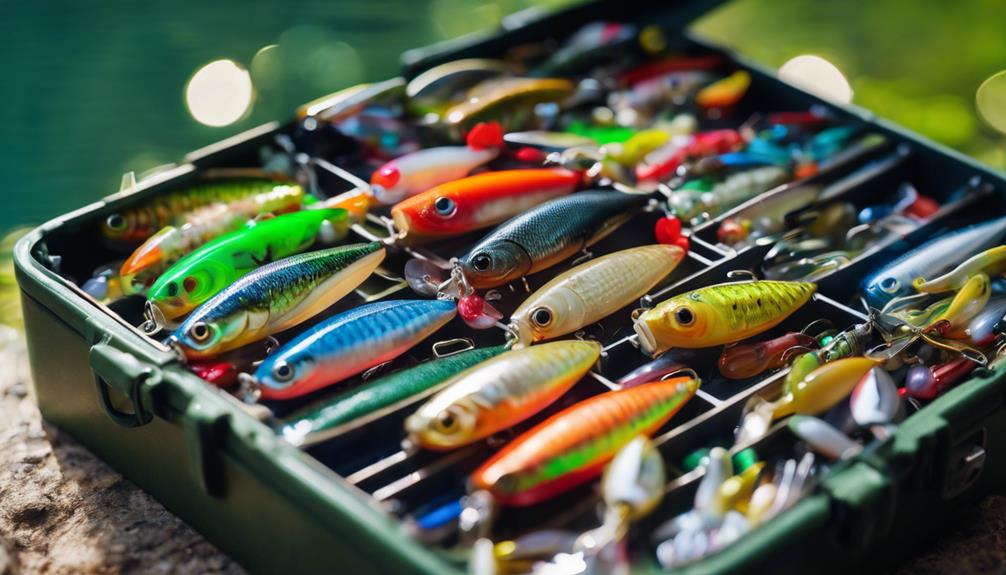Understanding Fly Fishing Specialties: A Unique Approach to Angling
Fly fishing specialties encompass a range of techniques, gear, and locations that set this style of fishing apart from traditional methods. Unlike conventional angling that often relies on bait, fly fishing uses artificial flies to lure fish. This method is particularly effective for targeting species such as trout, bass, and salmon. Understanding the nuances of fly fishing specialties can drastically enhance your fishing experience, enabling you to catch fish in a more sustainable and engaging manner. Whether you’re a novice or an experienced angler, delving into the world of fly fishing specialties will elevate your skills and appreciation for the sport.
Essential Gear for Fly Fishing Specialties: What You Need
When it comes to fly fishing specialties, having the right gear is critical. The essentials include a fly rod, reel, line, and a selection of flies. Fly rods typically range from 7 to 9 feet in length and are designed specifically for casting lightweight flies. The reel plays a vital role in controlling line tension and retrieving fish. Fly lines are specially designed to float or sink, depending on the fishing situation. Finally, a well-stocked fly box containing various types of flies—dry flies, nymphs, and streamers—will allow you to adapt to different fishing conditions. Investing in quality gear tailored to your specific fly fishing specialties is key to improving your success on the water.
Choosing the Right Location for Your Fly Fishing Specialties
Selecting the right location is crucial for successful fly fishing specialties. Popular spots often include rivers, streams, lakes, and ponds where fish are abundant. Each body of water presents unique challenges and opportunities. For instance, flowing rivers may require different techniques compared to still lakes. Researching local fishing reports and understanding seasonal patterns can greatly influence your success. Additionally, consider fishing in areas that are less crowded, as this can lead to a more peaceful experience and greater chances of landing fish. By carefully selecting your fishing location, you can enhance your fly fishing specialties and ensure a productive outing.
Mastering Casting Techniques in Fly Fishing Specialties
Casting is perhaps the most critical skill in fly fishing specialties. Unlike conventional fishing, where you simply cast your bait, fly fishing requires precision and finesse. The two primary casting techniques are the overhead cast and the roll cast. The overhead cast is used for open water, allowing for longer distances, while the roll cast is beneficial in tight spaces with overhanging vegetation. Practicing these techniques will improve your accuracy and distance, making it easier to present your fly in the most enticing manner. Remember, the key to successful casting lies in your wrist movement and body positioning, so take the time to refine your technique.
Understanding Insects: The Key to Fly Selection in Fishing Specialties
A vital aspect of fly fishing specialties is understanding the insects that fish naturally feed on. By mimicking these insects with your flies, you increase your chances of a successful catch. Insects such as mayflies, caddisflies, and stoneflies are common in many freshwater ecosystems. Observing the water and identifying active hatches can help you choose the right fly pattern. For instance, if you notice mayflies hatching, opting for a dry fly that resembles these insects will likely yield better results. Emphasizing the importance of entomology in fly selection will take your fly fishing specialties to a whole new level.
Seasonal Strategies for Fly Fishing Specialties
Fly fishing specialties require a keen understanding of seasonal patterns. Different fish species exhibit varying behaviors based on the time of year, which can influence their feeding habits. In spring, fish are often more active as they prepare for spawning, making it an excellent time for anglers. Summer may offer opportunities for surface feeding, while fall can present a chance to catch larger fish as they feed in preparation for winter. Winter fishing can be challenging but rewarding, particularly for species like trout that remain active in colder waters. Adapting your tactics and fly selection to the seasons is crucial for optimizing your fly fishing specialties.
Conservation and Ethics in Fly Fishing Specialties
As with any outdoor activity, conservation and ethics play an essential role in fly fishing specialties. Practicing catch and release is a common ethical approach that allows anglers to enjoy the sport while ensuring that fish populations remain sustainable. Additionally, being mindful of your environment—such as avoiding the trampling of sensitive habitats and properly disposing of waste—demonstrates respect for nature. Familiarizing yourself with local regulations, including catch limits and protected areas, is vital for responsible fishing. By prioritizing conservation, you contribute to the longevity of the sport and the well-being of aquatic ecosystems.
Community and Resources for Fly Fishing Specialties
Engaging with the fly fishing community can provide invaluable resources to enhance your experience. Online forums, local clubs, and social media groups are excellent platforms for sharing tips, tricks, and experiences with fellow anglers. Many areas also offer workshops, guided trips, and fly-tying classes, which can help you develop new skills and foster connections with others who share your passion for fly fishing specialties. Don’t hesitate to seek out these resources, as they can be instrumental in your growth as an angler and deepen your appreciation for the art of fly fishing.
In conclusion, mastering fly fishing specialties requires a combination of the right gear, techniques, and knowledge of the environment. By understanding the intricacies of casting, selecting the right flies, and adhering to ethical practices, you can elevate your fly fishing experience. Whether you’re casting a line in a tranquil stream or a bustling river, embracing these specialties will lead to more rewarding fishing adventures. Happy fishing!
